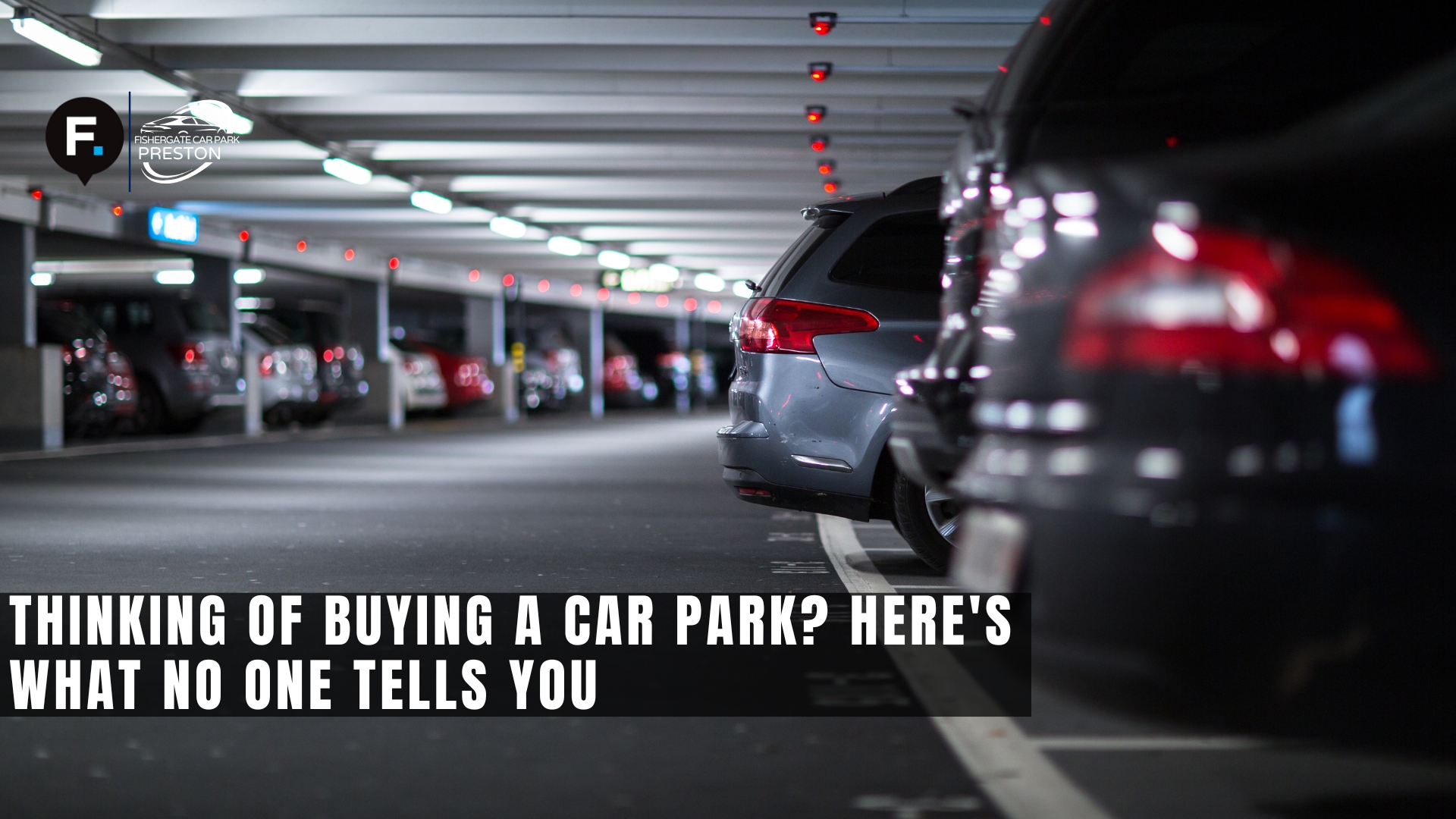Thinking of Buying a Car Park? Here’s What No One Tells You
Buying a car park sounds simple, but is it the clever investment people think it is? At Fishergate Car Park in Preston, we’ve observed what works and what surprises new owners the most. Whether you’re browsing car park for sale listings or following the latest parking space news, there are key truths you should know before jumping in. Let’s walk through the things most guides leave out.
Is Buying a Car Park a Good Investment in Today’s Market?
Yes, buying a car park can be a good investment if the location and demand are strong. With the rising value of land and limited city space, owning a car parking space for sale provides a solid return and passive income. Many investors now view parking spaces for sale as a more reliable investment than residential rentals. But returns vary widely, depending on how the car park is run. To judge that potential, you need to know what type of space you’re getting.
What Types of Car Parks Can You Actually Buy?
You can buy surface lots, underground car parks, multistorey buildings, or even just a single car park space for sale. Some options come fully set up with machines and systems, while others are bare plots with potential for customisation. You might also see car park spaces for sale in residential blocks as leasehold or freehold. Selecting the right type depends on your budget, local parking habits, and the level of hands-on involvement you prefer. Once you’ve made a decision, it’s time to consider the location.
How Do You Check If the Location Is Worth the Price?
A good location is more than just busy streets; you also need to consider usage trends, nearby developments, and transportation access. For example, car parking spaces for sale near stations or shopping centres often perform well. Examine demand at various times and the presence of competitors. Using local footfall data or speaking with nearby businesses can provide a clear picture. But even a great spot needs the right permissions.
What Planning Permissions or Regulations Should You Know About?
Yes, you need to follow planning rules and local regulations to use land as a public car park. Councils may require planning permission, especially when installing equipment or changing the use of a property. Business rates, insurance, and health and safety checks also apply. Failing to address these can result in legal trouble or fines. Once these are sorted, it’s time to think about upkeep.
Do You Need a Lot of Maintenance to Keep It Running?
No, car parks are generally low-maintenance, but they still require basic checks and regular cleaning. If you have barriers, lighting, or CCTV, they will require regular upkeep to remain reliable. A clean and safe environment also attracts more users and protects your investment. Still, these are minor compared to other property types. But that’s not the full cost picture.
What Are the Real Costs Beyond the Purchase Price?
Beyond the initial sale, you’ll incur costs such as insurance, business rates, cleaning, repairs, and occasionally staff wages. Adding systems like ticket machines or car park barriers can raise the setup costs. Even a single parking space for sale might come with service charges or lease fees. These expenses add up quickly, so be sure to include them in your forecast. Once you know the cost, consider ways to increase your earnings.
How Can You Make a Car Park More Profitable?
You can increase profits by enhancing convenience, introducing technology such as apps or ANPR, and offering long-stay or overnight options. Some owners boost revenue by renting unused spaces through apps or offering parking during events, particularly in high-demand locations like a train station car park. Well-placed lighting, clear signs and flexible pricing also help. Smart pricing is especially key in these areas. But with higher income comes more to manage.
What Risks Should You Watch Out for as a New Owner?
Yes, risks include low demand, vandalism, disputes, and unexpected maintenance costs. Some areas experience frequent trespassing or anti-social behaviour, which can deter users. Others may lose demand due to transport changes or new competition. You also need to consider weather damage or tech failure if your site is unattended. Choosing the right partner and understanding where to park strategically can help you avoid many of these issues.
Should You Manage the Car Park Yourself or Use a Service?
You can manage the site yourself or hire a professional company to handle payments, repairs, and customer support. While self-managing saves money, it takes more time and energy. Car park sales agents may also offer post-sale management services. For large or busy car parks, many buyers choose outsourcing. This frees you up and protects your investment. Still, there’s something few people mention when buying.
What’s the Truth About Car Park Ownership Most People Miss?
Most people do not realise that owning a car park means managing a business, not just owning a space. Even with a single parking space, you deal with customers, rules, and property upkeep. Done well, it can provide a stable income with minimal effort. However, success depends on careful planning, not just snapping up the first FishergateCarParkPreston for sale you come across.


Leave a Reply